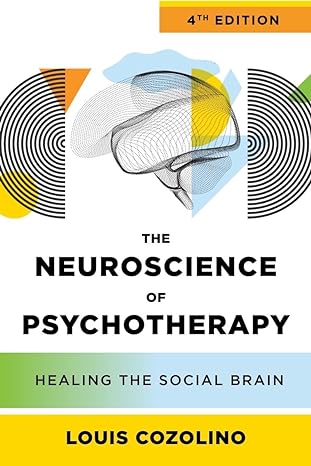The Brain has a Mind of its Own: Attachment, Neurobiology and the New Science of Psychotherapy

Book Details
- Publisher : Karnac Books
- Published : July 2020
- Cover : Paperback
- Pages : 208
- Category :
Neuroscience - Catalogue No : 95042
- ISBN 13 : 9781913494025
- ISBN 10 : 1913494020
There are currently no reviews
Be the first to review
Psychotherapy is a practice in search of a theory. Recent advances in relational neuroscience and attachment research now offer convincing avenues for understanding how the 'talking cure' helps clients recover. Drawing on Karl Friston's Free Energy Principle and contemporary attachment theory this book shows how psychotherapy works.
This pioneering text provides a deep theoretical explanation for how psychotherapy helps sufferers overcome trauma, redress relationship difficulties and ameliorate depression. Neuroscience validates the psychoanalytic principles of establishing a trusting therapeutic secure base: using ambiguity to bring pre-formed assumptions into view for revision; dream analysis, free association and playfulness in extending clients' repertoire of narratives for meeting life's vicissitudes; and re-starting the capacity to learn from experience. Holmes demonstrates how psychotherapy works at a neuroscientific level, making complex ideas vivid and comprehensible for a wide readership.
Reviews and Endorsements
This book is a visionary tour de force. It will serve as a guide to every clinician’s thinking. It takes a significant step towards realizing Freud’s ambition of establishing a viable neuroscientific model for psychotherapy. It is one of the most valuable contributions to the field this Century.
Professor Peter Fonagy, OBE, Professor of Contemporary Psychoanalysis and Developmental Science, UCL
If Sigmund Freud were working now, he would be advising us to read this rich and thought-provoking new book. The examples are profound and beautiful; and Jeremy’s work is a reminder that psychotherapy will always be both an art and a science.
Dr Gwen Adshead, Consultant Forensic Psychiatrist and Psychotherapist
The Free Energy Principle is the cutting edge of modern neuroscience. It is also notoriously difficult to grasp. Here, Jeremy Holmes explains it in terms that psychotherapists can understand so easily that it feels as if we always understood it.
Professor Mark Solms, University of Cape Town
As one of the architects of the free energy principle, it was a true joy – and something of an eye opener – to see how mathematical intuitions can be artfully unpacked to explain our transactions with others. This book renders problems such as these in a new, grounded and revealing light.
Professor Karl J. Friston, Scientific Director, Wellcome Centre for Human Neuroimaging, Institute of Neurology, UCL
The meticulous research that has gone into this book and the clarity with which the concepts are expressed generated a feeling in me that what I had been reading was meaningful, important, and did indeed support the statement Holmes makes on the first page that “psychoanalysis still has much to contribute to our understanding of what it is to be human”.
Tamar Posner
Professor Holmes is doing something important here, which is to bring psychoanalysis up to date in the light of what is now known about how brains grow and change in complexity across the life span and in different environments and situations. [...] Jeremy Holmes has worked in the field of complex relational psychopathology for over thirty years and his experience and compassion shines through and illuminates theories that are not easy to follow. I liked this book before it was published and I like it now.
Gwen Adshead
Table of Contents
Introduction
1. The free energy principle
2. Psychoanalytic resonances
3. Relational neuroscience
4. Free energy and psychopathology
5. Uncoupling top-down/bottom-up automaticity
6. FEP and attachment
7. Therapeutic conversations
8. Practical implications for psychotherapists
Epilogue
Glossary of terms
Acknowledgements
References
Index
About the Author(s)
Professor Jeremy Holmes, MD FRCPsych, was for twenty-five years an NHS Consultant Psychiatrist in London and North Devon. Honorary Professor at the University of Exeter, he co-founded the Exeter masters, now doctoral, programme in psychoanalytic studies, and the psychodynamic professional qualification course. Author or co-author of over twenty books and 250 papers, he lectures nationally and internationally. Now largely retired, he maintains a part-time private psychotherapy practice alongside grandparenting, allotment gardening, and Green politics.
Customer Reviews
Our customers have not yet reviewed this title. Be the first add your own review for this title.
You may also like
The Power of Group Attachment: John Bowlby Revisited from a Group-Analytic...
Arturo Ezquerro
Price £31.99
The Neuroscience of Psychotherapy: Healing the Social Brain: Fourth Edition
Louis Cozolino
Price £40.50
save £4.50










